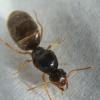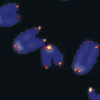- Formiculture.com
- Forums
- Gallery
- Members
- Member Map
- Chat

Should I Start Hibernating Some Ants Now?
Started By
NickAnter
, Sep 14 2019 7:59 AM
13 replies to this topic
#1
 Offline
-
Posted September 14 2019 - 7:59 AM
Offline
-
Posted September 14 2019 - 7:59 AM
So, I collected quite a few queens from the Eastern Sierras, and now, the area I collected them as it is getting below freezing at night. I am think about putting the Lasius, Leptothorax, and Camponotus in the wine cooler. I will put the Solenopsis molesta and Tennothorax in when all their workers eclose. Should I put some in hibernation, due to these temps?
Hi there! I went on a 6 month or so hiatus, in part due, and in part cause of the death of my colonies.
However, I went back to the Sierras, and restarted my collection, which is now as follows:
Aphaenogaster uinta, Camponotus vicinus, Camponotus modoc, Formica cf. aserva, Formica cf. micropthalma, Formica cf. manni, Formica subpolita, Formica cf. subaenescens, Lasius americanus, Manica invidia, Pogonomyrmex salinus, Pogonomyrmex sp. 1, Solenopsis validiuscula, & Solenopsis sp. 3 (new Sierra variant).
#2
 Offline
-
Posted September 14 2019 - 9:13 AM
Offline
-
Posted September 14 2019 - 9:13 AM
I'd think mimicking there natural summer/ winter cycle is a good bet.
- Martialis likes this
#3
 Offline
-
Posted September 14 2019 - 12:08 PM
Offline
-
Posted September 14 2019 - 12:08 PM
I agree.
"The ants are a people not strong, yet they prepare their meat in the summer." Prov. 30:25
Keep ordinary ants in extraordinary ways.
Keep ordinary ants in extraordinary ways.
#4
 Offline
-
Posted September 14 2019 - 1:49 PM
Offline
-
Posted September 14 2019 - 1:49 PM
How cold does the wine cooler get?
Sent from my SM-N960U using Tapatalk
Sent from my SM-N960U using Tapatalk
#5
 Offline
-
Posted September 14 2019 - 2:23 PM
Offline
-
Posted September 14 2019 - 2:23 PM
It can get into the thirties. I will hibernate them in the 40s though. I will put them in tomorrow, today I took them off the heating cable, so the change will be less drastic.
Hi there! I went on a 6 month or so hiatus, in part due, and in part cause of the death of my colonies.
However, I went back to the Sierras, and restarted my collection, which is now as follows:
Aphaenogaster uinta, Camponotus vicinus, Camponotus modoc, Formica cf. aserva, Formica cf. micropthalma, Formica cf. manni, Formica subpolita, Formica cf. subaenescens, Lasius americanus, Manica invidia, Pogonomyrmex salinus, Pogonomyrmex sp. 1, Solenopsis validiuscula, & Solenopsis sp. 3 (new Sierra variant).
#6
 Offline
-
Posted September 14 2019 - 2:30 PM
Offline
-
Posted September 14 2019 - 2:30 PM
I would wait till October.
- NickAnter likes this
My Main Journal | My Neivamyrmex Journal | My Ant Adoption | My YouTube
Join the TennesseeAnts Discord Server! https://discord.gg/JbKwPgs
#7
 Offline
-
Posted September 14 2019 - 2:33 PM
Offline
-
Posted September 14 2019 - 2:33 PM
Cool. I was wondering myself, how do we know what temperature is a safe hibernation temp for ants. I mean in the wild they dig deep. Depending on the area above ground could be 30 degrees, but they dig down 13 inches, so what's the temp they are sleeping in underground? How can I figure that ball park of a safe hibernation temperature?
Sent from my SM-N960U using Tapatalk
Sent from my SM-N960U using Tapatalk
#8
 Offline
-
Posted September 14 2019 - 2:43 PM
Offline
-
Posted September 14 2019 - 2:43 PM
I would wait till October.
Thing is, by October, it will be getting into the tens at night where these ants are found. Here is the weather forecasted for this week:
Sat

83°
39°
Sun

77°
41°
Mon

67°
30°
Tue

71°
35°
Wed

72°
33°
Thu

64°
28°
Fri

65°
31°
Sat
 As you can see, it gets pretty cold at night already. When temps get below freezing, ants hibernate, right?
As you can see, it gets pretty cold at night already. When temps get below freezing, ants hibernate, right?70°
35°
Hi there! I went on a 6 month or so hiatus, in part due, and in part cause of the death of my colonies.
However, I went back to the Sierras, and restarted my collection, which is now as follows:
Aphaenogaster uinta, Camponotus vicinus, Camponotus modoc, Formica cf. aserva, Formica cf. micropthalma, Formica cf. manni, Formica subpolita, Formica cf. subaenescens, Lasius americanus, Manica invidia, Pogonomyrmex salinus, Pogonomyrmex sp. 1, Solenopsis validiuscula, & Solenopsis sp. 3 (new Sierra variant).
#9
 Offline
-
Posted September 14 2019 - 2:47 PM
Offline
-
Posted September 14 2019 - 2:47 PM
Well, I guess I will wait a couple more weeks.
Hi there! I went on a 6 month or so hiatus, in part due, and in part cause of the death of my colonies.
However, I went back to the Sierras, and restarted my collection, which is now as follows:
Aphaenogaster uinta, Camponotus vicinus, Camponotus modoc, Formica cf. aserva, Formica cf. micropthalma, Formica cf. manni, Formica subpolita, Formica cf. subaenescens, Lasius americanus, Manica invidia, Pogonomyrmex salinus, Pogonomyrmex sp. 1, Solenopsis validiuscula, & Solenopsis sp. 3 (new Sierra variant).
#10
 Offline
-
Posted September 14 2019 - 5:51 PM
Offline
-
Posted September 14 2019 - 5:51 PM
In think ants are on their own biological clock. When they start slowing down and the queen stops laying eggs is a good sign when it's time to hibernate. Just my opinion.
Sent from my SM-N960U using Tapatalk
Sent from my SM-N960U using Tapatalk
#11
 Offline
-
Posted September 14 2019 - 5:55 PM
Offline
-
Posted September 14 2019 - 5:55 PM
bUt tHeY aReNt bEarS
i eat cars for breakfast everynight
#12
 Offline
-
Posted September 14 2019 - 6:01 PM
Offline
-
Posted September 14 2019 - 6:01 PM
bUt tHeY aReNt bEarS
Ants in the more temperate regions have to hibernate(often called diapause). During this time, there is little or no activity. The reason they do this is because it's too cold for them to do anything, and not many things are alive. Also, bears don't hibernate.
Edited by DDD101DDD, September 14 2019 - 6:07 PM.
He travels, he seeks the p a r m e s a n.
#13
 Offline
-
Posted September 14 2019 - 6:27 PM
Offline
-
Posted September 14 2019 - 6:27 PM
bUt tHeY aReNt bEarS
Ants in the more temperate regions have to hibernate(often called diapause). During this time, there is little or no activity. The reason they do this is because it's too cold for them to do anything, and not many things are alive. Also, bears don't hibernate.
its a joke but ok
i eat cars for breakfast everynight
#14
 Offline
-
Posted September 14 2019 - 6:29 PM
Offline
-
Posted September 14 2019 - 6:29 PM
bUt tHeY aReNt bEarS
Ants in the more temperate regions have to hibernate(often called diapause). During this time, there is little or no activity. The reason they do this is because it's too cold for them to do anything, and not many things are alive. Also, bears don't hibernate.
its a joke but ok
It's hard to tell when people are serious.
He travels, he seeks the p a r m e s a n.
1 user(s) are reading this topic
0 members, 1 guests, 0 anonymous users



















